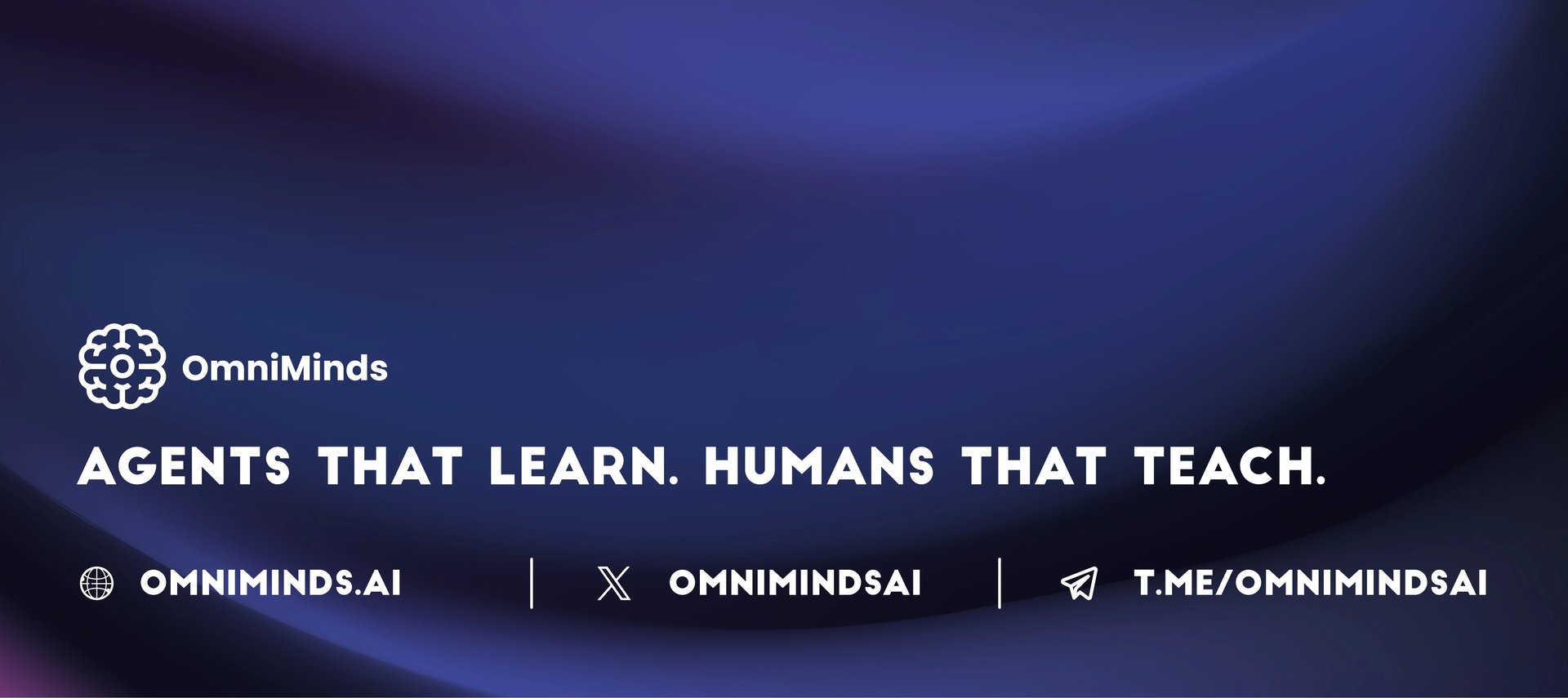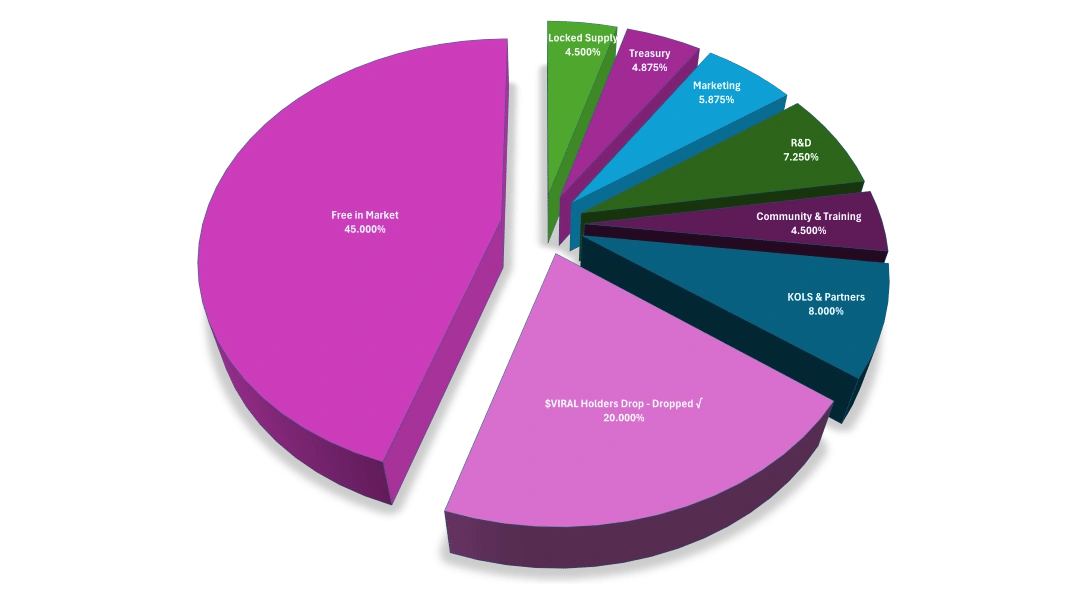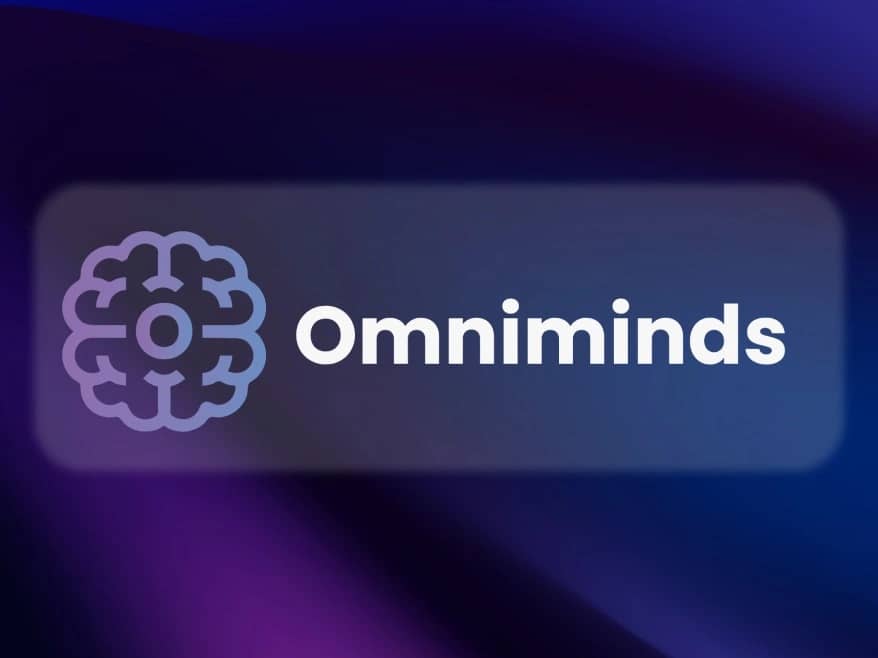Subscribe to wiki
Share wiki
Bookmark
OmniMinds
The Agent Tokenization Platform (ATP):Build autonomous agents with the Agent Development Kit (ADK)
0%
OmniMinds
OmniMinds, launched in May 2025, is an open-source platform focused on the development of Computer Use Agents (CUAs). It aims to build the foundation for powerful computer-use agents through crowdsourced action datasets, open-source tools, and agent models. [1]

Overview
OmniMinds is presented as an open-source initiative dedicated to enabling the creation and deployment of AI agents capable of interacting with computer applications in a manner similar to humans. The project's core concept revolves around collecting and utilizing large datasets of human computer interactions to train these agents. This approach is intended to allow automation of tasks that are not typically accessible via traditional APIs. The platform provides tools and infrastructure designed to support the training, deployment, and monetization of these computer-use agents. [1] [2]
The development roadmap for OmniMinds began with Phase 1, initiated shortly after the platform's launch. This initial phase is structured into three sprints over five weeks, focusing on rebuilding, rebranding, and redeploying the backend infrastructure to support agent development. The project is based on evolving the ViralMind base into a more powerful system. [1] [2]
The long term vision includes more infrastructure components to allow CUAs to be discovered, work with on another, act and transact on behalf of users, access private networks, get human approvals and provision different services.
Products/Features
- The Dojo: This component allows users to provide demonstrations of how to use computer applications. Users can earn rewards in the form of $OMNIS tokens for uploading these demonstrations. [1] [2]
- The Arena: This feature is intended for users who wants to request trained CUAs. Users can specify their AI needs, and the platform aims to facilitate the training of these agents using quality demonstrations collected through the Dojo. [1]
- LaunchBay: This allows running and monetizing trained Agents based on user actions requests or integration with other AI agents through MCP, A2A or direct user trigger. It is being trained using data generated by the community.[1] [2]
Ecosystem
OmniMinds is building an ecosystem to support the development and operation of Computer Use Agents. This ecosystem includes the infrastructure necessary to train and run the agent models. Key components of the planned ecosystem include a decentralized service marketplace and infrastructure for agent-to-agent payments. The ecosystem is designed to enable the monetization of automated services provided by the agents. [1] [2]
Use Cases
Target users include:
- Contributors: Individuals who provide data demonstrations to train agents and earn rewards
- Developers: Those who build and work with the open-source tools and agent models
- Communities: Groups that can leverage the platform to train agents for specific needs
- Companies: Businesses that may require specialized agents to automate internal workflows or services [1]
The platform aims to enable the automation of any task currently possible on a computer. Examples of tasks demonstrated in the dataset preview include:
- Opening Notepad, loading a file, searching for text, counting instances, and saving the count to a new file
- Setting a timer in the Clock app
- Modifying settings in applications like VS Code to disable specific error reporting
- Configuring browser settings in Edge and Chrome to automatically delete site data upon closing
- Converting text separated by commas into a table format
- Exporting a document into PDF format
- Changing the desktop background to a solid color
- Updating a username in Chrome profiles
- Adjusting volume settings in applications like VLC Player [1]
Architecture
OmniMinds' architecture is centered around the concept of Computer Use Agents (CUAs) that interact with computer interfaces. Unlike agents that rely solely on APIs, CUAs are designed to operate applications by simulating human actions, such as mouse movements and clicks, and interpreting visual information from the screen. The platform utilizes a Video-Language-Action Dataset to train these agents, mapping natural language instructions and visual states to specific computer actions. The project mentions a "CPU-as-currency" model as part of its architecture, suggesting that computational resources may play a role in the ecosystem's operation or reward structure. [1] [2]
Tokenomics
OmniMinds Token ($OMNIS)
The $OMNIS token functions as a utility asset within the OmniMind ecosystem, supporting the creation and refinement of AI training data.
Token holders with a specific minimum threshold can request agents in Dojos and fund reward pools, or export curated datasets for the development of custom AI agents. The token is tradable against assets such as $USDC and $SOL on supported exchanges. [1]
Allocation
The total supply of $OMNIS is distributed across various functional areas to support the platform's development, operations, and community engagement:
- Locked Supply: 4.5% of the total supply is locked until May 2026 via a Jupiter Lock contract, associated with the creator wallet.
- Vested Treasury: 4.875% is vested over six months until November 2025, accessible through the creator wallet.
- Marketing: 5.875% is allocated to marketing and listing initiatives. This portion is held in a dedicated wallet and remains available for ongoing promotional efforts.
- Technology R&D: 7.25% is vested over six months until November 2025, designated for technical development and distributed through an R&D wallet.
- Community & Training: 4.5% is reserved for community incentives and training disbursements, held in a wallet used to escrow and fund related activities.
- KOLs & Partners: 8% is designated for collaboration with key opinion leaders and partners. Distributions from this pool may follow vesting schedules.
- $VIRAL Holders Airdrop: 20% was distributed at launch to previous $VIRAL token holders as part of an airdrop initiative.
- Open Market: 65% is available for public trading, comprising 45% released at launch and an additional 20% following the airdrop.

See something wrong?
The Agent Tokenization Platform (ATP):Build autonomous agents with the Agent Development Kit (ADK)
